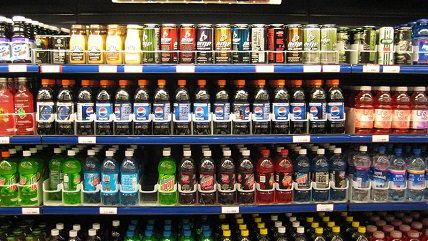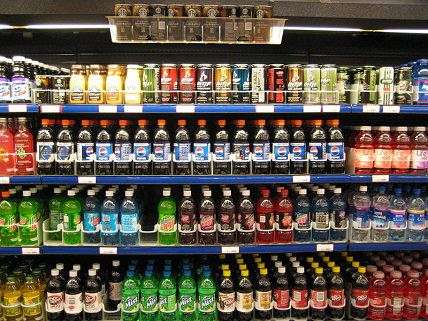The Real Impact of the NYC Soda Ban's Well-Deserved Defeat
Public health activists in New York City and beyond will feel the sting from the defeat of the city's misguided soda ban. And that's a good thing.


Last week, the New York State Court of Appeals—the state's highest court—dealt a final death blow to New York City's reviled soda ban. The decision, which upheld two lower court rulings, drew an important line in the sand across which New York City's activist health department may no longer cross.
Like the lower courts before it, the high court held that the city's health department, an unelected board appointed by then-mayor Michael Bloomberg, violated the state constitution by exercising legislative powers it does not possess in order to enact the soda ban. That's important, because it means that the city's health department, which previously banned trans fats, for example, may no longer make law and policy choices without prior legislative guidance. The court also ruled that the soda ban was discriminatory in its impact, since many places that sell large sodas, including 7-Eleven, were exempt.
While the lower courts had ruled unanimously against the ban—first in a one-judge decision, and later in a three-judge appellate decision—the state high court ruling was a 4-2 decision (with one judge abstaining).
Though, as I note, the majority decision largely reiterates the strong denunciation by the lower courts of New York City's soda ban, the dissenting opinion issued by the court last week is worth a look for the unprecedented lengths it goes in a failed attempt to justify and uphold the soda ban.
To do so, the dissent, authored by Judge Susan P. Read, argues that rules adopted by the city health department are on par with state law.
"[Its] authority to regulate the public health in the City is delegated by the New York State Legislature, and its regulations have the force and effect of state law," writes Read.
That's a positively bizarre argument. After all, state law trump the laws of any one city. Under Judge Read's theory, the rules enacted by the unelected city health department carry greater force in New York City than those laws passed by the mayor and city council. Effectively, Read would give the health department veto power over all New York City laws that have any bearing on public health.
While that may sound like a stretch, Read actually embraces this characterization in her dissent.
"If a regulation promulgated by the Board in the Health Code conflicts in some direct way with a local law, the Board's action trumps the [City] Council's," she writes.
That's downright chilling. Under that interpretation, the health department would have the authority to mandate any number of health-related rules by which city residents must abide. The health department could, for example, mandate early bedtimes for New York City residents. The city never sleeps? It does now. And the city council would be completely powerless to do anything about it.
What's more, a mayor at odds with the city council on any number of health issues could simply ignore the council's judgment on those issues and ask his health department to pass rules the city council adamantly opposed. In practice, that's exactly what happened with the soda ban—a law then-Mayor Bloomberg found the city council unwilling to pass.
In her dissent, Read also discusses New York City's first-in-the-nation trans fat ban. She argues that because the city council enacted the trans fat ban before the legislature later adopted rules implementing the ban, that gave the health department a green light to adopt the soda ban.
That's one way to read the rule. But I don't think it's the right way to read it. Another way to read it is that the New York City trans fat ban was unconstitutional when it was adopted by the health department. Still another way to read it is that the city's trans fat ban may still be unconstitutional. I think a strong case can be made for the latter reading I suggest. But I think the former reading—that the trans fat ban was unconstitutional on the day it was adopted, and that any similar future ban enacted by the health department would be unconstitutional, too—is now settled law.
The legal reach of the soda ban's defeat technically stays within the jurisdiction of the New York State courts. But the ruling nevertheless has national ramifications.
New York City health department rules often find their way elsewhere around the country. Right now, for example, the FDA is attempting to copy New York City's trans fat ban. The less power the city's health department has to make bad food rules, the fewer such rules we'll see elsewhere in this country.
The New York ruling also comes as two states have similarly rebuffed recent efforts to crack down on soda sales. The California legislature rejected an absurd proposal to slap warning labels on soda, while the Illinois legislature rejected a soda tax. Collectively, these developments should be seen for what they are—as victories for consumers, beverage makers and sellers, and supporters of food freedom alike.
New York City's soda ban is dead. For good.
Show Comments (74)